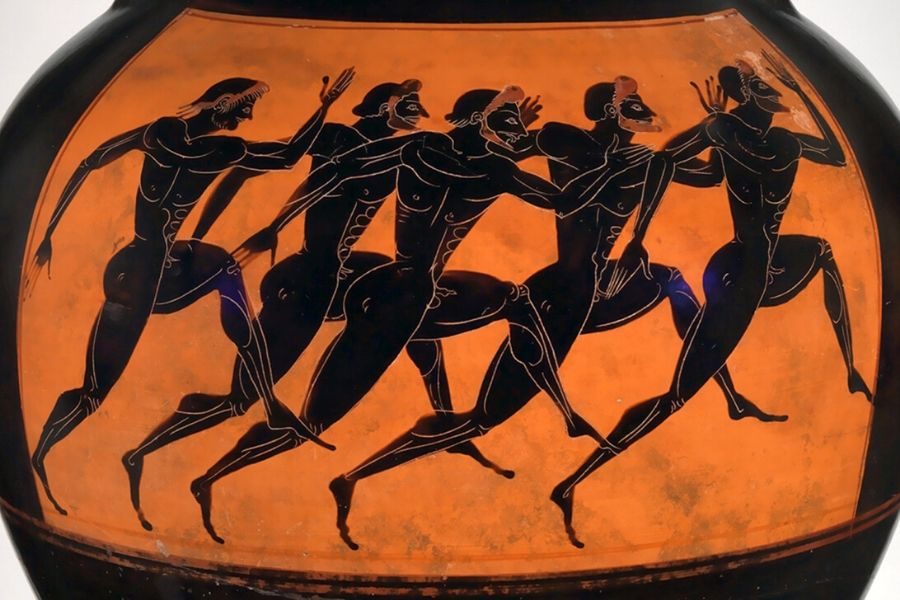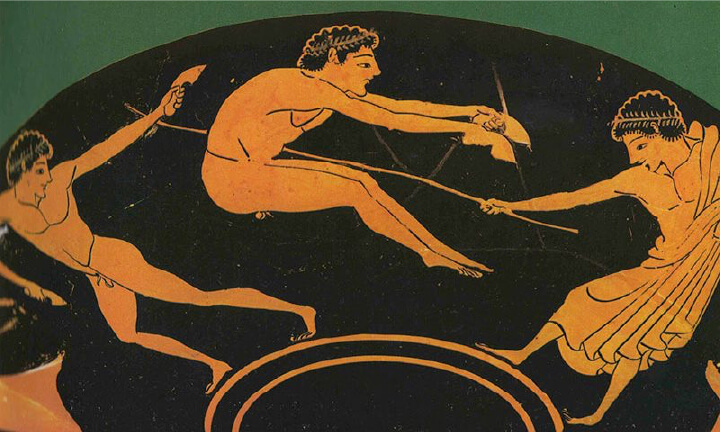News
The Olympic Games originated from ancient Greece, what makes their competitions unique?
The Olympic Games are the most renowned sporting event of ancient times: it is accurate to say that sports originated in Olympia, within the great sanctuary located in the northwest of the Peloponnese, in 776 BCE, laying the foundation for all sports competitions.
Modern Olympic Games trace their roots back to events with religious, cultural, and sporting significance aimed at honoring the gods from ancient Greek times, traditionally organized by the mythological figure Heracles, the son of Zeus.
We have records of sporting activities dating back to the third millennium BCE, in the civilizations of Egypt and Sumer: combat sports, especially wrestling, were popular during that era. In general, the prominence of Greek sports is largely attributed to the Olympic competitions established in modern times, in 1896, at the proposal of Baron Pierre de Coubertin. Apart from the common feature of being held every four years, the differences between ancient and modern sports became more apparent in the late 19th century.
Continuous evolution of sporting disciplines The number of sporting disciplines and participants has significantly increased in recent decades – such as nearly 400 French athletes competing in track and field in Rio; and the fact that football, a professional sport, has become an Olympic discipline is something the ancients never had. Both Greeks and Romans played ball games, but team sports with this ball were never included in ancient official competitions.
The Olympic program lasts for four or five days – with a portion of the time allocated to religious ceremonies – and except for equestrian events, athletes compete in the nude.

Privileges of the Noble Class
Horse races, held in racetracks, include chariot races and horseback riding competitions.
In the case of the quadriga races, where four horses pull the chariot, it brings significant athletic glory, but it must be remembered that only the owner of the chariot and horses receives the laurel wreath, the symbol of victory, not the horse rider or the charioteer themselves.
In this context, women could win if they were the owners: a particularly exceptional circumstance in Olympia and other major ancient races, as only men could compete on the stadium running track! And this is clearly a fundamental difference from modern Olympic events – but it should be noted that Coubertin was not in favor of creating women’s competitions… As in the case of Polyzalos, a tyrant in Gela, Sicily, who won the prize in the early fifth century BCE
Track and field events include running competitions, combat sports, and 5 combined events (the first sport to combine multiple disciplines in sporting history). There are three running events, two short-distance races, one 1 stade race, approximately 180 meters – corresponding to the length of the racecourse; another race with 2 stades-less than 400 meters; and the final running event called dolichos with 20 stades (roughly nearly 4000 meters).
There is also the armed race, where athletes wear helmets and shields: this is the last event, and it marks the end of the sacred Olympic truce (which never led to the cessation of all wars, but was a possibility for athletes and spectators not to be killed by enemies of their city on the journey to Olympia).
Wrestling, Boxing, Pankration
The three combat sports – wrestling, boxing, and pankration – do not differentiate between heavyweight and lightweight classes; only heavyweight athletes can emerge victorious.
Ancient wrestling, known as pale, bears no resemblance to our modern “Greco-Roman” style: competitors were allowed to grip below the waist, and victory was achieved by tripping the opponent to the ground three times.
The wrestler Milo of Croton, a six-time champion at Olympia, is perhaps the most famous athlete of ancient Greece.
In boxing (pugilism) and pankration, bouts do not have rounds; they continue until one of the opponents is knocked out (K.O.) or surrenders. An ancient Greek author suggested that a round belly was the badge of a fighter: because it was hard for opponents to reach his head, except with significantly long arms…
Pankration is a hybrid of boxing and wrestling, but it is less dangerous than boxing because athletes do not wear gloves, and matches take place on the ground. It is regulated that biting or poking fingers into the opponent’s eyes is prohibited: so this “trick” is not the only cunning of a modern rugby player.
Pentathlon
The pentathlon consists of five events, including a 1-stade race, wrestling (although the races are individual), discus throw, javelin throw, and long jump.
When the Olympic Games were held in Athens in 2004, there was a desire to include an event reminiscent of ancient sports, and weightlifting was chosen: this was a mistake, as weightlifting was never officially named in ancient competitions!
The long jump, in fact, is a 5-step jump without a run-up – we know that standing jumps were included in the program of the first modern Olympic Games. Determining the winner in the pentathlon requires meeting complex criteria, except in cases of a clear dominance by one athlete.

